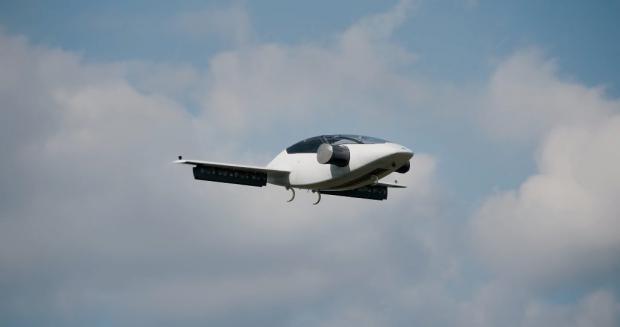
Breaking News
 Tesla Has A New, Cheaper Model Y. Will It Work?
Tesla Has A New, Cheaper Model Y. Will It Work?
 The Japanese Yen Carry Trade Is Breaking: The Trillion-Dollar Risk
The Japanese Yen Carry Trade Is Breaking: The Trillion-Dollar Risk
 Let's Do a Detailed Review of Zorin -- Is This Good for Ex-Windows Users?
Let's Do a Detailed Review of Zorin -- Is This Good for Ex-Windows Users?
 The World's First Sodium-Ion Battery EV Is A Winter Range Monster
The World's First Sodium-Ion Battery EV Is A Winter Range Monster
Top Tech News
 How underwater 3D printing could soon transform maritime construction
How underwater 3D printing could soon transform maritime construction
 Smart soldering iron packs a camera to show you what you're doing
Smart soldering iron packs a camera to show you what you're doing
 Look, no hands: Flying umbrella follows user through the rain
Look, no hands: Flying umbrella follows user through the rain
 Critical Linux Warning: 800,000 Devices Are EXPOSED
Critical Linux Warning: 800,000 Devices Are EXPOSED
 'Brave New World': IVF Company's Eugenics Tool Lets Couples Pick 'Best' Baby, Di
'Brave New World': IVF Company's Eugenics Tool Lets Couples Pick 'Best' Baby, Di
 The smartphone just fired a warning shot at the camera industry.
The smartphone just fired a warning shot at the camera industry.
 A revolutionary breakthrough in dental science is changing how we fight tooth decay
A revolutionary breakthrough in dental science is changing how we fight tooth decay
 Docan Energy "Panda": 32kWh for $2,530!
Docan Energy "Panda": 32kWh for $2,530!
 Rugged phone with multi-day battery life doubles as a 1080p projector
Rugged phone with multi-day battery life doubles as a 1080p projector
 4 Sisters Invent Electric Tractor with Mom and Dad and it's Selling in 5 Countries
4 Sisters Invent Electric Tractor with Mom and Dad and it's Selling in 5 Countries
Lilium and ABB announce MegaWatt ultra-charging system for eVTOLs

That means they'll need to charge up in little more time than it takes to get passengers and luggage on and off.
This is going to require some extraordinary chargers – not to mention battery packs that can take the stress of ultra-fast charging. So German eVTOL company Lilium has teamed up with Swedish/Swiss multinational giant ABB on a monster charging system designed to blast-charge batteries and ensure quick turnaround.
True to its name, the MegaWatt system will push up to a full thousand kilowatts of power DC. Lilium says this will give its aircraft a full 0-100 percent charge in around 30 minutes, or a quick 0-80 percent charge in just 15 minutes. This, combined with the 7-seat air taxi's projected range of 155 miles (250 km) and cruise speed around 175 mph (282 km/h), will allow each aircraft to make between 20 and 25 flights per day.
The MegaWatt Charging System (MCS) is a new standard under development specifically targeted at large electric vehicles like trucks, buses, municipal and commercial vehicles. With a single hand-held cable and plug, it'll push maximum voltages up to 1,500 V, and maximum currents up to 3,000 A – so it theoretically supports charging at up to 4.5 megawatts. How exactly that works without causing the lights to go out in several nearby suburbs will be interesting to learn.
A significant number of major transport industry players are on board with this project, and as such, the system developed by Lilium and ABB will be compatible with a range of other heavy vehicles – not that we'd expect them to come cruising past a Lilium vertiport hoping for a top up.
ABB has considerable form in this arena; it's already rolling out the world's fastest commercially-available chargers for regular EVs: the 360-kilowatt Terra 360.



